In the new era of development - when the country is growing strongly in many fields, from economy to culture, from science to international integration - the Hung King worship belief not only retains its traditional values but is also gradually being lit up by the spirit of the times, continuing to be a cultural source that nurtures Vietnamese identity and aspirations.
The sacred soul of the ancestral land: The lasting roots of the nation
Amidst the myriad changes of history, amidst the hustle and bustle of the new era, there is still a place where the hearts of millions of Vietnamese people still stand still - that is the sacred land of the ancestors, where the majestic Hung Temple stands amidst the white clouds of Nghia Linh mountain. That place, not only has green forests, flowing streams and the sound of bronze drums echoing in the distant memories, but it is also the place that preserves the sacred soul of the mountains and rivers, the strong roots of the entire nation.
In the Vietnamese mind, it is the most sacred of sacred places, the starting point of every journey, the place for everyone to return to, whether by foot or by the deepest vibrations in the heart.

The Chu Hoa commune sacrificial team (Viet Tri city) performs traditional sacrificial rituals at the temple of the National Ancestor Lac Long Quan.
The Hung King worship belief originates from a very Vietnamese moral vein - the morality of "when drinking water, remember its source". It is from the deep gratitude towards the ancestors who "opened the mountains and broke the rocks", built the country, protected the borders and laid the foundation for a culture with a strong identity, that this belief was formed - like an underground stream seeping into every layer of soil, every way of life, every breath of the Vietnamese community. It is a gratitude not only for an individual or a dynasty, but also a respect for the common ancestors - the Hung Kings - the first people who named this country by a sacred name: Van Lang.
Every year, on the 10th day of the third lunar month, from all over Vietnam - from mountain tops to cities, from remote villages to remote islands - people make pilgrimages to the land of their ancestors. They do not come just to visit or worship. They come to calm their hearts, to relive a part of their national memories, to find their roots. The incense sticks lit at the Upper Temple are not only a religious ritual, but also a promise to their ancestors: Today's descendants will always remember the merits of their ancestors, and continue on the path of building and defending the country. No matter where you go, remember the anniversary of the ancestors on the 10th day of the third lunar month.
No need for elaborate rituals, no need for profound philosophy, the sacredness of the Hung King worship is passed on like a flame through the hands of mothers and grandmothers, through lullabies on summer afternoons and simple but heartwarming ancestor worship meals. That is when children are taught: "You are the descendants of the Dragon, you are the children of this country". That is when Vietnamese people, no matter how far away from home, yearn for the day they can return to burn incense in the land of their ancestors, to let their hearts be quiet in the sound of the wind, in the incense smoke, and in the stream of people that continues like the never-ending lifeblood of the nation.

The celebrant performs the burning ceremony at the temple of the National Ancestor Lac Long Quan
Unlike many other beliefs associated with religious doctrines or philosophies, the Hung King worship is a belief of the heart, of devotion. It does not need to be explained, because it is felt. It does not distinguish between noble and humble, big and small, because anyone with Vietnamese blood is a descendant of Lac Hong. The Hung Kings are not only symbols of the past, but also present vividly in the present - in every action towards the origin, in every festival, in every aspect of village culture, in the lifestyle and thinking of the Vietnamese people.
And strangely, the more time passes, the stronger that belief becomes, the more sacred and close it becomes. In every Vietnamese heart, whether they are making a living in the city or cherishing their life in a foreign land, there is always a very special memory called "Ancestral Land", a place that preserves spiritual roots, a place where people return not only to pray for peace, but also to feel that they are still a part of the endless flow of national history.
That sacred soul is not only the soul of a relic, but also the soul of the country, the spiritual identity of a country that has gone through many challenges to survive, to revive and to rise up. It is the source connecting the past with the present, the bridge that helps the Vietnamese people overcome the limitations of time and space, to understand themselves better, love their country more deeply, and from there live more responsibly for the future of the nation.
And that is why, when standing before the Ancestral Altar, whether a child or a silver-haired old man, whether a simple villager or a successful person in a bustling city - everyone feels their heart beat with respect. It is a harmony that does not need to be expressed in words, an invisible force that has created the solidarity of the Vietnamese community for generations - a force that originates from the belief that: we have the same origin, the same ancestors, and have the responsibility to preserve and develop that heritage for the future.
" The Hung King worship is therefore not only a cultural asset, but also a spiritual pillar of the Vietnamese people" - Associate Professor, Dr. Bui Hoai Son.
Women - the keepers of faith for generations
If the Hung King worship is a sacred fire burning in the national consciousness, then women are the ones who silently preserve, pass on and warm that fire through each generation. Not noisy, not brilliant, but they themselves - mothers, grandmothers, sisters - are the "female priests" of spiritual life, the bridge between ancestors and today's generation with love, faith and perseverance that nothing can replace.
Since ancient times, in the Vietnamese countryside, women have been the center of family life - not only the ones who maintain the family tradition, but also the ones who look after the ancestral altar, prepare the death anniversary meal, and light incense sticks during Tet holidays. During ancestral worship ceremonies, or death anniversaries held at the village communal house, women are the ones who wrap banh chung, cook sweet soup, meticulously arrange each gold bar, flowers, fruits, etc. No one teaches them through books, but traditional rituals have been passed down by their own hands, by the loving eyes of mothers for their children, by the lullaby "Ah oh... my child, remember this sentence, the father's merit is like Thai Son mountain, the mother's kindness is like the water flowing from the source..." - lullabies that have protected many generations growing up in a sacred connection with their ancestors.

Bronze drum performance and pole-stabbing at Hung Vuong Museum (Hung Temple Historical Site)
In Phu Tho - the cradle of Hung King worship - the mark of women is even more evident. They are not only active participants in festival activities, but also preserve intangible cultural values related to the belief, such as Xoan singing, worshiping dances and songs. Many women have become Xoan singers - one of the important elements recognized by UNESCO along with the Hung King worship. Ancient Xoan melodies, once thought to be lost, have been revived from the love for the profession, the love for the homeland and the spirit of preserving the roots of the mothers and sisters in the land of the ancestors.
These women do not just sing for fun, but they sing with all their hearts, sing to tell the history of their ancestors, to inspire their children and grandchildren, to preserve the collective memory of the whole community. They do not see it as "work", but as a responsibility, a pride, a noble spiritual mission that they must shoulder. There are mothers and grandmothers who have been attached to Xoan singing, to Hung Temple, to traditional festivals for decades, without ever receiving any reward - their greatest reward is the passionate eyes of their children and grandchildren, the belief that tradition is still being preserved, despite the changing times.
Today, in the digital age, the role of women in preserving ancestral beliefs is even more diverse and flexible. They not only keep the fire burning in the kitchen and on the ancestral altar, but also inspire the community with their own energy and creativity. Many female teachers bring legends about Hung Kings into lively lessons for primary school students. Many female researchers have devoted their lives to exploiting the cultural depth of this belief, connecting it with artistic and spiritual expressions, and building a solid academic foundation. Many female artists, designers, content creators, etc. have brought the images of Hung Kings, symbols of the homeland, into fashion, on stage, on social networks - new spaces of belief in the digital age.
They - modern women - are still lighting new fires from old fires. From simple actions: teaching children to clasp their hands before the ancestral altar, taking children to Phu Tho on the occasion of the Ancestor's Death Anniversary, or simply telling children about "banh chung banh giay", about father Lac Long Quan and mother Au Co. From there, traditions are not forgotten, but continue to live - in a new rhythm of life, in a new language, but still carrying the old soul.

Members of the Cultural Camp, Viet Tri city (Phu Tho) make Chung cake and pound Giay cake at the Hung Temple historical relic site.
And we cannot fail to mention the overseas Vietnamese women living abroad. In Vietnamese communities in Europe, America or Australia, they still celebrate their ancestors' death anniversaries and teach their children to remember their roots. In a small apartment in the West, a small altar with a picture of the Hung Kings, a peach blossom branch, a banh chung cake... is still a place for them to lean on when they miss their homeland, a place to teach the second and third generations: "You are Vietnamese. You have a Fatherland."
It can be said that throughout the flow of the Hung King worship, Vietnamese women are the resilient underground river, flowing quietly, but full of cultural alluvium. They not only preserve that belief, but also make it alive, close, and durable in community life. They are the bridge between tradition and modernity, between ancestors and descendants, between the homeland and all regions of the country. And in every step towards Hung Temple, in every wisp of incense smoke rising to the blue sky, we can see the image of mothers, grandmothers, and Vietnamese women - silently shouldering the mission of preserving a part of the nation's soul.
Spiritual support to maintain identity
It can be said that in each incense stick offered to the Hung Kings, there are so many beliefs, aspirations and responsibilities. It is not just a ritual act, but a silent dialogue between today's descendants and their ancestors - a sacred continuity that no words can fully describe. Every time we return to our homeland, standing under the canopy of the old pine forest listening to the bells ringing in the morning mist, we suddenly feel light-hearted - as if in the midst of a life full of upheavals, there is still a place for the soul to take refuge, to calm down, to gain strength.
In the new development journey, where technology, economy, diplomacy... become the modern pillars of the nation, we need more than ever spiritual support to maintain our identity. And the Hung King worship belief - with its historical depth, with the enduring vitality of folk culture, with the energy of community connection - has been and is a smoldering flame burning in every Vietnamese person, so that no matter how strong the winds of the times blow, that origin remains unshaken.

Many cultural and artistic activities serve tourists at Hung Temple
That belief, thanks to being preserved and lit by the mother's hands, the grandmother's lullaby, the proud eyes of the father leading his child to the Upper Temple, is being reborn in each young generation. It is a generation that knows how to use technology, knows how to integrate globally, but also does not forget to light an incense stick on the anniversary of the death of the ancestors, does not forget to put a hand on its chest every time the National Anthem is sung and whispers the simple but sacred words: "I am Vietnamese."
We may not know how the future will change, what great achievements will be created, what challenges lie ahead. But one thing is certain: if we still know how to turn to our roots, if there is still one day in the year for millions of Vietnamese people to make a pilgrimage to the land of our ancestors, if every child born still hears the story of the Dragon father and the Fairy mother, still learns to bow respectfully to their ancestors with deep gratitude - then that future will be a future with roots, with soul.
The Hung Kings worship is therefore not only a cultural asset, but also a spiritual pillar of the Vietnamese people. A heart that beats with the rhythm of love, gratitude, connection and aspiration. From there, we can continue to write the Vietnamese dream - not only strong in economy, modern in technology, but also deep in culture, strong in spirit, and eternal in soul.
From the source of Phong Chau to the four corners of the earth, from generations of children today to generations to come - that journey continues. And the light from the ancestral land will forever shine - illuminating the path for the Vietnamese people on the road to the great ocean, always remembering the way back to the ancestral land.
Associate Professor, Dr. Bui Hoai Son - Photo: Ta Toan/VNA
Source: https://baotanglichsu.vn/vi/Articles/3096/75345/tin-nguong-tho-cung-hung-vuong-trong-ky-nguyen-phat-trien-moi-cua-dan-toc.html


![[Photo] The parade took to the streets, walking among the arms of tens of thousands of people.](https://vphoto.vietnam.vn/thumb/1200x675/vietnam/resource/IMAGE/2025/4/30/180ec64521094c87bdb5a983ff1a30a4)
![[Photo] Panorama of the parade celebrating the 50th anniversary of the Liberation of the South and National Reunification](https://vphoto.vietnam.vn/thumb/1200x675/vietnam/resource/IMAGE/2025/4/30/affbd72e439d4362962babbf222ffb8b)
![[Photo] "King Cobra" Su-30MK2 completed its glorious mission on April 30](https://vphoto.vietnam.vn/thumb/1200x675/vietnam/resource/IMAGE/2025/4/30/5724b5c99b7a40db81aa7c418523defe)



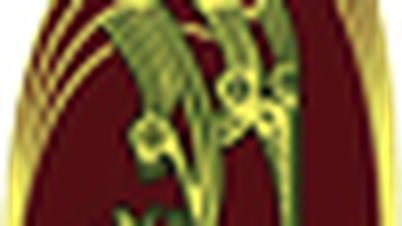
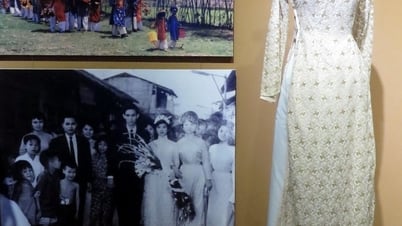
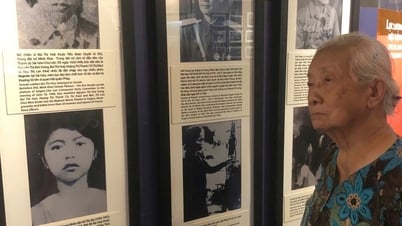


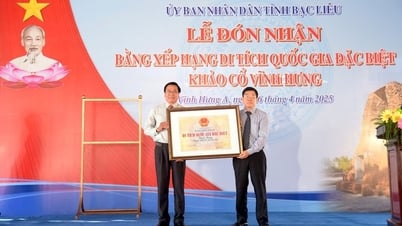






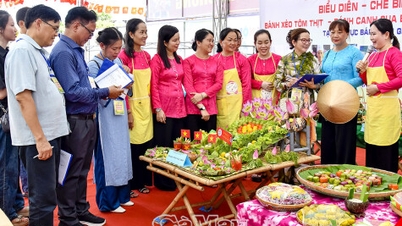
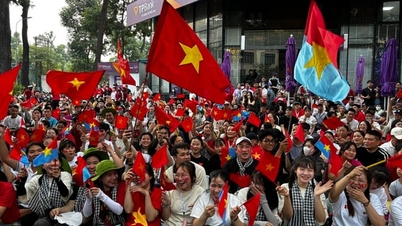
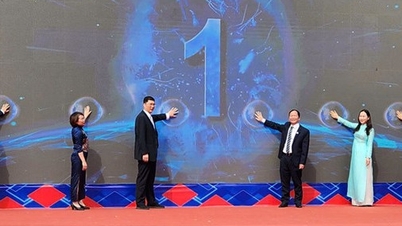

![[Photo] Cultural, sports and media bloc at the 50th Anniversary of Southern Liberation and National Reunification Day](https://vphoto.vietnam.vn/thumb/1200x675/vietnam/resource/IMAGE/2025/4/30/8a22f876e8d24890be2ae3d88c9b201c)


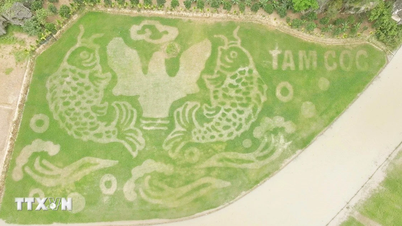

















































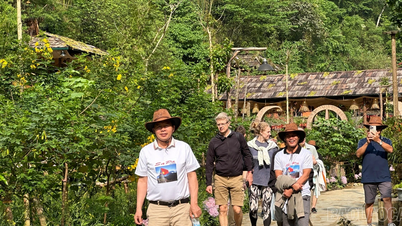
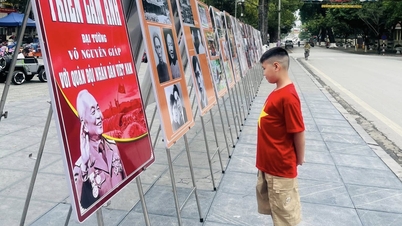
















Comment (0)